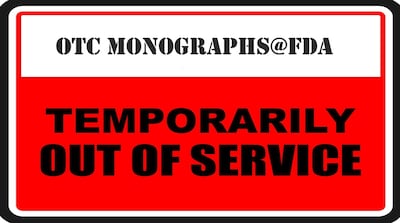Politics
Avoiding disaster at the beginning of the pandemic and offering a pro-active supply chain blueprint should position the generics industry well for an onshoring debate in Congress, but a look back at March 2020 is a reminder that even small policy shifts can have a big impact.
A change in leadership of the US FDA device center is taking place with an eye towards stability in the longer term, but the upcoming elections could lead to more disruptive personnel changes.
The agency is clearly on the radar of former President Trump and his new coterie of tech moguls.
A change in leadership of the US FDA device center is taking place with an eye towards stability in the longer term, but the upcoming elections could lead to more disruptive personnel changes.
California Senate Appropriations Committee suspends consideration of bill for current session after it and Judiciary Committee voted to recommend passing the bill earlier in session. Legislative sessions continue in Massachusetts and New Jersey with bills for similar restrictions.
The first round of US government drug price negotiations resulted in prices for 10 drugs that will lower aggregate net spending by 22%
A bipartisan bill now in the US Senate seeks to change the classification of implantable hearing aid devices to allow Medicare to reimburse for the devices, potentially expanding access for many Americans who require them.
With monographs@FDA portal down, agency moves to NextGen and extends comment period through 27 September for first OTC monograph change it proposed using its overhauled program other than 32 monographs finalizations required in 2020 legislation authorizing overhaul.
A draft declaration to be presented to the UN General Assembly in September suggests that a “lack of regulation of over-the-counter use of antimicrobials” is one of the “drivers of antimicrobial resistance.” Industry, however, insists that misuse and over-prescription of antibiotics are the primary drivers of AMR, and is advocating for the text to be amended accordingly.
While the National Electrical Manufacturers Association supports the Biden Administration’s plan to impose tariffs on a range of Chinese goods coming into the US, it also supports holding off on their implantation.
Critics expect FDA already has reached conclusion about compelling making kratom a controlled substance. “Their conclusion seems to be pretty well preordained,” says NPA CEO Daniel Fabricant.
The shake up in the US presidential campaign line up could have implications for future drug pricing policies. VP Kamala Harris has been an advocate for “march in” rights and could push that policy harder than incumbent President Joe Biden.
CRN appreciates Durbin’s “commitment to greater transparency in the dietary supplement marketplace,” but “cannot endorse it in its current form”; AHPA asks for better option; and NPA remains opposed.
Publication of final guidance for industry on submitting change proposals and other requests using the only accepted format, electronic, leaves agency at four of the five required guidances it has provided on compliance with requirements of its streamlined OTC monograph process.
The US FDA has created a web page with answers to common questions concerning the agency’s final rule on regulating laboratory developed tests as medical devices.
The UK's consumer healthcare industry association, PAGB, sets out six priorities for the new UK government, following the landslide victory of the Labour Party in the recent general election. One of these priorities is driving Rx-to-OTC switch - something that the UK public also wants, according to the association's latest Self-Care Census, published to mark International Self-Care Day 2024.
Analysts tracking consumer health product firms in the US anticipatevApril-June results lower than a year ago across most businesses. While some results will be lower on comparisons with strong growth in 2023, others will reflect a slow allergy season, retailers’ inventories remaining high as consumer spending slows or firms continuing to recover from supply chain problems.
Attorneys discuss potential impacts on consumer health products industry from Supreme Court’s “Loper Bright” decision in June on litigation brought by two fisheries, Loper Bright v. Raimondo and Relentless v. Department of Commerce.
Noting similar warnings a year ago, the FDA and FTC announce warnings to six more, part of a joint effort to stop sales of copycat food products containing delta-8 THC, saying companies selling these "illegal products are demonstrating complete neglect for consumer safety.”
Growing geopolitical tensions and a slowing Chinese economy are among the topmost concerns for global business leaders across sectors, a McKinsey study has shown. Separately, in pharma, the BIOSECURE Act continues to occupy centre stage with US House Speaker Johnson recently pledging to push China-targeted legislation before House elections in November
ADVERTISEMENT



















